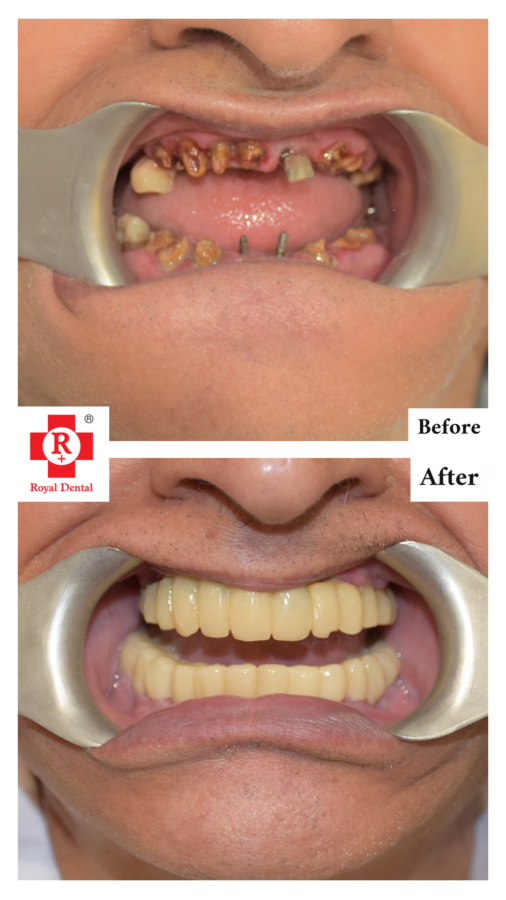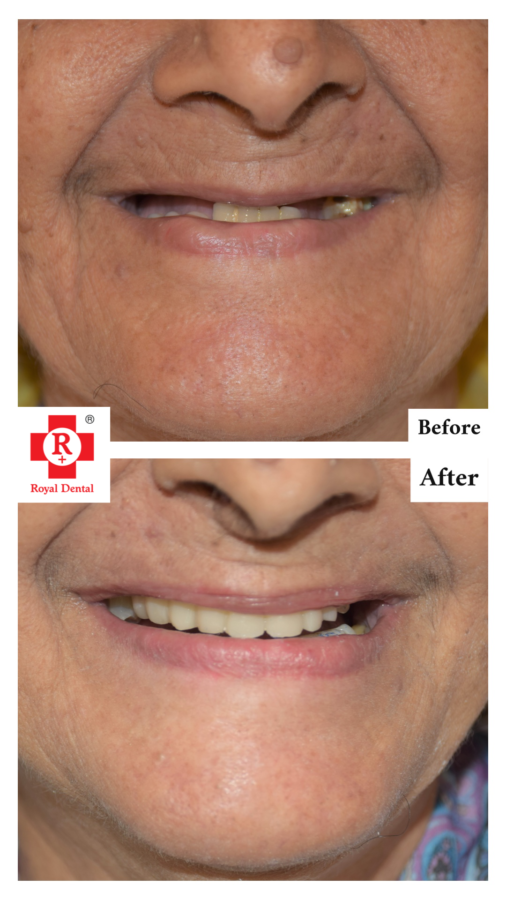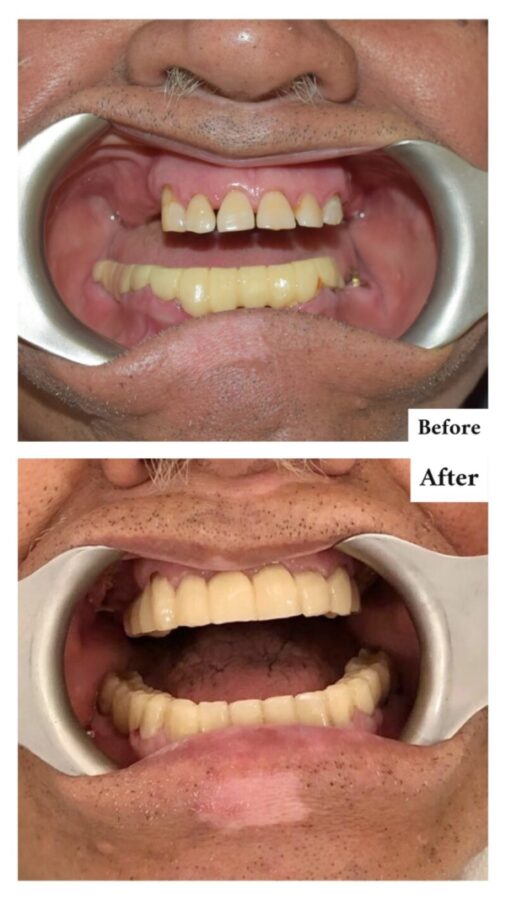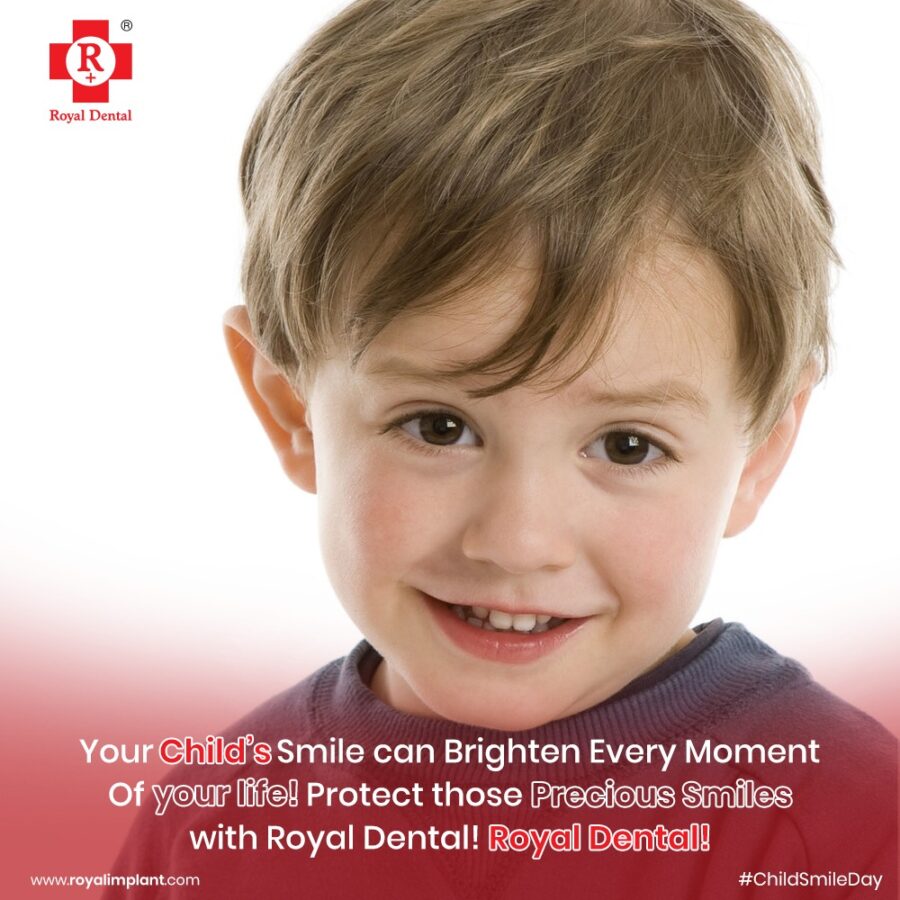As a parent, you want the best for your child’s oral health. However, if your child has lost a tooth due to injury, decay, or any other reason, you may be wondering what the best solution is for their dental restoration. Dental implants have become a popular choice for adults, but can they be an option for children? In this article, we will explore the benefits of dental implants, the suitability of dental implant for children, what the procedure entails, and how to care for your child’s dental implants. By the end of this guide, you will have a better understanding of dental implants and be able to make an informed decision about your child’s dental health. Let us explore the benefits of dental implants incase of tooth loss for suitability of dental implants in children and what procedure entail.
Causes of Tooth Loss in Children
Tooth decay: Untreated cavities can lead to tooth decay, which can eventually result in tooth loss.
Trauma: Falls, sports injuries, or other types of trauma to the face or mouth can cause a tooth to become loose or fall out.
Genetic factors: Some children may be genetically predisposed to tooth loss due to inherited dental conditions.
Gum disease: Gum disease, also known as periodontitis, can lead to tooth loss if left untreated.
Abnormal tooth development: Certain developmental disorders can affect tooth development and result in premature tooth loss.
Bruxism: Children who grind their teeth may experience wear and tear that can cause tooth damage and loss.
Poor oral hygiene: Neglecting to brush and floss regularly can lead to tooth decay and gum disease, which can eventually result in tooth loss.
It’s important for parents to encourage good oral hygiene habits and regular dental checkups for their children to help prevent tooth loss and ensure optimal oral health.
Benefits of Dental Implants for Children
In general, dental implants are not recommended for children as their jaws are still growing and developing. Children’s bone and gum tissues are not fully formed, which can make it difficult for dental implants to integrate properly and lead to potential complications.
Additionally, children may not be able to properly care for dental implants and maintain good oral hygiene practices, which can increase the risk of infection and other issues.



However, in certain rare cases, dental implants may be recommended for children who have congenital conditions or have suffered traumatic injuries that have resulted in the loss of permanent teeth. In these cases, the child’s jaw growth and development must be carefully evaluated, and the risks and benefits of implant treatment must be carefully weighed.
Ultimately, the decision to recommend dental implants for children is made on a case-by-case basis and requires a thorough evaluation by a qualified dental professional.
Types of Dental Implants for Children
Dental implants are generally not recommended for children, as their jaws are still developing and their bone and gum tissues are not fully formed. However, in rare cases where dental implants are deemed necessary, the type of implant used will depend on the specific needs and circumstances of the child. Here are some types of dental implants that may be used in children:
Endosteal Implants: These are the most common type of dental implant and are placed directly into the jawbone. Endosteal implants are typically made of titanium and are designed to integrate with the bone tissue over time. This type of implant is generally not recommended for children, as their jawbone may not be fully developed and may not provide sufficient support for the implant.
Subperiosteal Implants: Subperiosteal implants are placed under the gum tissue and above the jawbone. They are recommended for patients who do not have enough bone density to support endosteal implants. This type of implant may be used in children in cases where the jawbone is not fully developed or where bone grafting is not possible.
Watch Dr Chirag talk about Dental Implant
Zygomatic Implants: These implants are placed in the cheekbone (zygoma) and are recommended for patients who do not have enough bone density in the upper jaw to support traditional implants. Zygomatic implants may be used in rare cases for children who have congenital conditions or have suffered traumatic injuries that have resulted in the loss of permanent teeth.
It’s important to note that dental implants are generally not recommended for children unless deemed absolutely necessary by a qualified dental professional. The decision to recommend a particular type of implant will depend on the specific needs and circumstances of the child.
Candidacy for Dental Implants in Children
It’s important to note that dental implants are generally not recommended for children unless deemed absolutely necessary by a qualified dental professional. The decision to recommend a particular type of implant will depend on the specific needs and circumstances of the child.
Not all children are suitable candidates for them. In order to be considered for an implant, a child must have fully developed jawbones and healthy gum tissue. This typically means that children under the age of 16 are not eligible for dental implants, as their jawbones are still developing.
In addition to age, other factors that may impact a child’s candidacy for them include overall health, bone density, and the location of the missing tooth. It is important to consult with a pediatric dental implant specialist to determine if dental implants are a viable option for your child.
Age: Children who are still growing and developing may not be good candidates for dental implants. Implants are typically recommended for individuals who have reached full skeletal maturity, which is usually around the age of 18 for girls and 21 for boys.
Bone Development: Dental implants require a certain amount of healthy bone tissue to support them. Children’s bone tissue is still developing, which can make it difficult for implants to integrate properly. Before considering implant treatment, a child’s jawbone must be carefully evaluated to ensure that there is enough healthy bone tissue to support the implant.

Oral Health: Good oral hygiene is essential for the success of dental implants. Children must be able to maintain good oral hygiene practices and keep the implant site clean to prevent infection and other complications.
Medical History: Children with certain medical conditions may not be good candidates for dental implants. Before considering implant treatment, a child’s medical history must be carefully evaluated to ensure that there are no contraindications for the procedure.
Trauma or Congenital Conditions: Children who have suffered traumatic injuries or who have congenital conditions that have resulted in the loss of permanent teeth may be considered for dental implants. In these cases, the child’s jaw growth and development must be carefully evaluated, and the risks and benefits of implant treatment must be carefully weighed.
The Dental Implant Procedure for Children
Consultation: The first step is to meet with a pediatric dental implant specialist to discuss your child’s individual needs and determine if they are a viable option.
Preparation: Before the implant can be placed, the child’s mouth will need to be prepared. This may involve removing any remaining tooth or damaged tissue, as well as cleaning and sterilizing the area.
Implant Placement: The implant will then be placed into the jawbone, either directly or under the gum tissue. The child will be given a local anesthetic to numb the area and minimize discomfort.
Healing: After the implant is placed, the child will need to allow time for the implant to fuse with the surrounding bone tissue. This typically takes several months and may require follow-up appointments with the dental specialist.
Restoration: Once the implant has fully healed, a dental crown or bridge will be placed on top of the implant to restore the child’s natural appearance and function.
Overall, with proper care and maintenance, dental implants can be a successful and long-lasting solution to tooth loss in children. However, there are also risks and complications associated with dental implants, which we will explore in the next section.
Allergic Reaction: Some children may have an allergic reaction to the materials used in the implant, which may require removal of the implant.
It is important to discuss these risks and complications with your pediatric dental implant specialist before deciding on a course of treatment for your child.
Frequently Asked Questions: Dental Implants for Children
Q: What is the success rate of dental implants for children?
A: The success rate of dental implants for children is generally high, with studies showing success rates of over 90%.
Q: How long do dental implants last in children?
A: With proper care and maintenance, they can last a lifetime in children.
Q: Can dental implants be removed or replaced?
A: In some cases, they may need to be removed or replaced due to complications or implant failure.
Q: Is the dental implant procedure painful?
A: The procedure is typically performed under local anesthesia, which minimizes discomfort during the procedure. However, some children may experience mild discomfort or soreness following the procedure.
Q: How much do dental implants for children cost?
A: The cost of them for children can vary depending on several factors, including the location of the missing tooth, the type of implant used, and the child’s individual needs. It is important to discuss the cost of treatment with your pediatric dental implant specialist.
Finding a Pediatric Dental Implant Specialist
If your child has lost a permanent tooth due to injury or other factors. A pediatric dental implant specialist can help to restore their smile and oral health. However, not all dental professionals are trained in pediatric dental implant procedures. So it’s important to find a specialist with experience and expertise in this area.
At Royal Dental Clinics, we offer a team of highly trained and experienced pediatric dental implant specialists who are dedicated to providing the highest quality care for your child. Here’s what you can expect when you choose Royal Dental Clinics for your child’s dental implant needs:
Expertise and Experience: Our pediatric dental implant specialists have undergone extensive training in implant dentistry and have years of experience working with children of all ages. They stay up-to-date with the latest techniques and technologies to ensure that your child receives the best possible care.
Royal Dental Clinics | One Day Dental Implant | | Dr. Chirag Chamria
Comprehensive Evaluation: Before any dental implant procedure. Our specialists will conduct a thorough evaluation of your child’s oral health to determine the best course of treatment. They will take into account factors such as the child’s age. The condition of their remaining teeth and gums, and their overall health to develop a personalized treatment plan.
Child-Friendly Environment: At Royal Dental Clinics, we understand that children may feel anxious or scared about dental procedures. That’s why we have designed our clinics to be warm, welcoming, and child-friendly, with toys, games, and other distractions to help your child feel more comfortable.
If your child needs a dental implant, trust the experts at Royal Dental Clinics to provide the highest quality care. Contact us today to schedule a consultation with one of our pediatric dental implant specialists.
Conclusion
Dental implants can be a successful and long-lasting solution to tooth loss in children. While there are risks and complications associated with the procedure. They offer several benefits over other options such as dentures or bridges. If you are considering them for your child. It is important to consult with a qualified pediatric dental implant specialist to determine if it is a viable option. With proper care and maintenance. They can restore your child’s natural appearance and function, and improve their overall quality of life.






